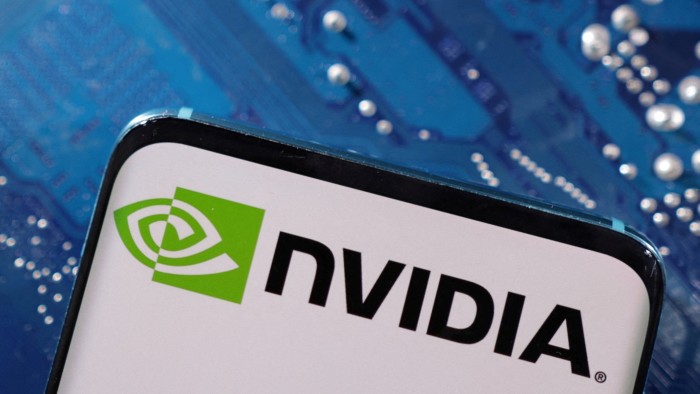This article is an on-site version of our FirstFT newsletter. Subscribers can sign up to our Asia, Europe/Africa or Americas edition to get the newsletter delivered every weekday morning. Explore all of our newsletters here
Good morning and welcome back to FirstFT Asia. In today’s newsletter:
-
Nvidia’s latest results
-
The Chinese gadget maker taking on Tesla and Apple
-
India’s judicial backlog
-
“Ninja stealth rally” drives Japanese stocks
We start with artificial intelligence chipmaker Nvidia’s hotly anticipated results, which were released yesterday amid market jitters about whether the momentum around AI can continue. Here’s what to know.
Solid results: Nvidia reported revenue of $46.7bn for the quarter to July 28, up 56 per cent year on year and slightly above consensus estimates of $46.5bn, according to Visible Alpha. The company said it expected $54bn in sales for the current quarter, plus or minus 2 per cent, compared with expectations of $53.8bn.
Why Nvidia matters: The $4tn tech giant’s role in designing the advanced chips that are used to develop and run AI models such as ChatGPT has propelled it to become the world’s most valuable group by market capitalisation and made it a bellwether for the AI boom. Its shares took a hit last week during a widespread sell-off in companies linked to AI, after a negative report on its practical applications and comments by OpenAI chief executive Sam Altman about investors overhyping the technology.
China outlook uncertain: Nvidia has become embroiled in US President Donald Trump’s trade war with Beijing. Analysts said Nvidia’s decision not to include China AI chip revenue in its outlook disappointed investors after it cut a deal with the Trump administration to resume sales of the H20 chip, which Nvidia designed for the Chinese market.
Gene Munster, managing partner at Deepwater Asset Management, said excluding China meant Nvidia’s guidance was lower than what some had expected. “That $54bn doesn’t include the H20 — and I was shocked that they didn’t,” he said. Read the full story.
-
Chinese AI: China’s chipmakers are seeking to triple the country’s total output of AI processors next year, as Beijing races the US to develop the most advanced AI.
-
More AI news: OpenAI’s corporate restructuring is likely to slip into next year, as the ChatGPT maker negotiates over key terms of its future relationship with Microsoft.
Here’s what else we’re keeping tabs on today:
-
Economic data: Japan publishes July trade statistics and Malaysia reports producer prices for the month,
-
Monetary policy: Central banks in South Korea and the Philippines announce their rate decisions.
Five more top stories
1. Punitive US tariffs on India over its purchases of discounted Russian oil took effect yesterday, dealing a blow to the world’s fastest-growing large economy and deepening a rift between Washington and New Delhi. The 25 per cent levy, which came on top of a 25 per cent “reciprocal” tariff, raised duties on India to among the highest in the world.
2. Denmark has summoned the top US diplomat in the country over reports that American citizens with alleged links to President Donald Trump have been conducting covert influence operations in Greenland. Lars Løkke Rasmussen, Denmark’s foreign minister, said that there were “foreign actors” attempting to influence the future of Greenland and that all such efforts were “unacceptable”.
3. A Pentagon unit responsible for boosting the adoption of new commercial technologies by the US military is preparing to deploy officials to dozens of allied countries, as Washington struggles to counter China’s military build-up on its own. The plan includes sending a representative to Taiwan this year to speed up collaboration on drones, as well as posting an official in Japan.
4. Mitsubishi Corporation has blamed high turbine costs for its withdrawal from three major offshore wind projects in Japan, in a retreat that marks a setback for the country’s energy self-sufficiency drive. The projects were part of a push by Japan to adopt more renewable power but the country’s offshore wind adoption has been more challenging than other nations. Here’s why.
5. Argentine President Javier Milei was evacuated from an election campaign event yesterday after stones were thrown at his motorcade amid public anger over allegations of corruption in his administration. A presidential spokesperson said there were no injuries and blamed the attack on militants from the Peronist opposition. Read the full story.
News in-depth

Xiaomi, once dismissed as an “assembly workshop”, has overtaken rivals to become the world’s third-largest smartphone seller. The Chinese group is now setting its sights on becoming a high-tech manufacturer, producing everything from rice cookers to robot vacuums and a vastly popular premium car. As it challenges Apple and Tesla, the gadget maker has inspired loyal fans who flock to its Beijing electric vehicle factory every day to watch the production line churn out a car every 76 seconds.
We’re also reading . . .
Chart of the day
A four-month “ninja stealth rally”, which began shortly after the panic set off by Trump’s “liberation day” tariff announcements, has driven Tokyo’s equity market to record highs. Japanese stocks have gained as global investors diversify away from China and the US and bet that a decade of structural change has transformed Japan’s corporate boardrooms.

Take a break from the news . . .
After an eight-year closure and a reputed $2bn renovation, New York’s Waldorf Astoria hotel is glittering again. A soft launch in July saw the opening of its new restaurants, lobby bar and guest rooms, while the whole hotel — ballrooms, spa and all — officially opens on September 1. The FT’s architecture critic Edwin Heathcote was among the first to stay in the revamped hotel. Here’s his review.



